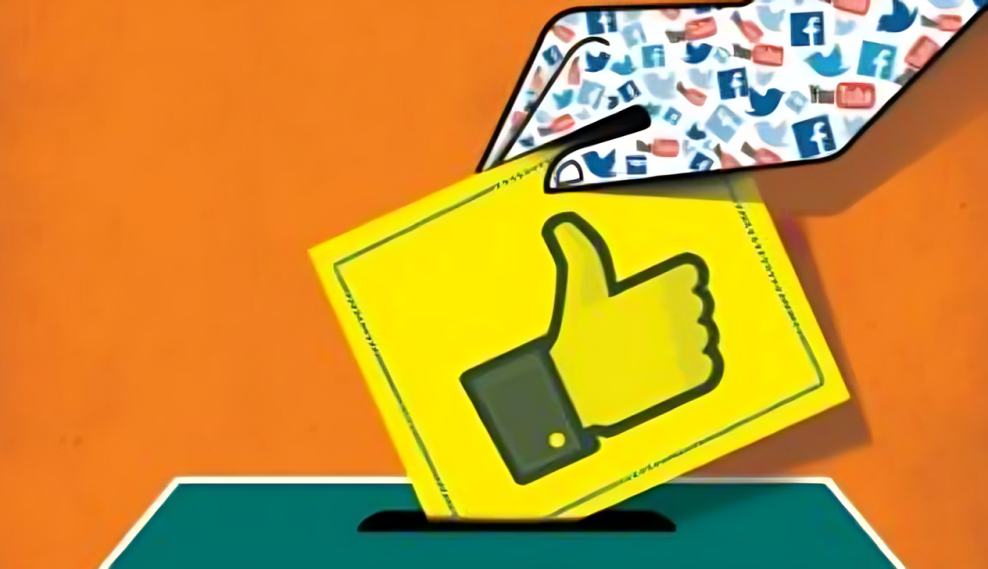Social Media V/S Democracy


News:
The U.K’s The Guardian newspaper announced earlier this month that it will no longer be posting on X, claiming that it is “a toxic media platform” and that its owner, Elon Musk, “has been able to use its influence to shape political discourse.”
Arguments in Favor of Social Media as a Beneficial Tool for Democracy
Platform for Free Expression:
- Social media provides a platform for individuals to express opinions, exchange ideas, and engage in political discourse. It amplifies marginalized voices, enabling democratic participation for those without traditional media representation. This democratization of information fosters open discussions, encourages active engagement, and empowers individuals to participate in political movements.
Access to Diverse Information:
- Social media facilitates access to diverse information, helping people learn about perspectives and issues not covered by traditional media. This promotes the creation of an informed electorate, crucial for a vibrant democracy. People are no longer reliant on a few media organizations, ensuring the free flow of information and diverse viewpoints.
Mobilization and Advocacy:
- Social media is a powerful tool for social movements, enabling grassroots organizations and activists to mobilize quickly, organize protests, and raise awareness on key political and social issues. Its speed and reach allow for real-time advocacy, facilitating significant changes in policy, public opinion, and awareness on issues like civil rights, climate change, and gender equality.
Increased Accountability:
- Social media platforms allow citizens to hold governments and political leaders accountable. Through platforms like Twitter and Facebook, people can engage with public figures, report corruption, and demand transparency. This heightened visibility and public scrutiny help deter bad governance, promote transparency, and encourage leaders to act in the public’s interest.
Encouraging Civic Engagement:
- Social media transforms how people engage with campaigns and elections. It encourages civic participation by enabling citizens to interact with political candidates, share information, and discuss public issues. Social media platforms also help candidates reach a broader audience, engage with voters directly, and mobilize support, promoting informed voting.
Combatting Censorship and Promoting Democracy:
- In authoritarian regimes, social media allows people to bypass state-controlled media, share uncensored information, and organize opposition. Platforms like Facebook and Twitter have played a critical role in uprisings, challenging authoritarian governments and promoting democratic values. Social media provides an essential space for citizens to resist censorship and advocate for democratic reforms.
Arguments Against Social Media as a Threat to Democracy
Misinformation and Manipulation:
- The spread of misinformation, disinformation, and fake news is a significant issue on social media platforms. These platforms can easily be exploited to spread false narratives, manipulate public opinion, and interfere in elections, undermining democratic processes and societal trust.
Centralization of Power:
- With a few large tech companies controlling most of the social media platforms, there is a risk of centralizing power and control over information. This allows these platforms, owned by a small group of people or corporations, to shape political discourse and influence public opinion in ways that benefit their own interests.
Erosion of Trust in Journalism:
- The rise of social media has contributed to the erosion of trust in traditional media outlets. Platforms like X (formerly Twitter) allow for a free-flowing exchange of information, but the lack of editorial oversight and moderation often leads to a prevalence of harmful content, including hate speech, extremism, and falsehoods. This undermines the credibility of legitimate news sources and erodes public trust in factual journalism.
Toxicity and Polarization:
- Social media platforms can foster toxic online environments, where extreme views and hate speech thrive. This toxicity leads to increased polarization within society, where people retreat into echo chambers, reinforcing their own biases and becoming more resistant to differing opinions. This harms democratic dialogue, which depends on open, respectful debate and compromise.
Censorship and Political Bias:
- The concentration of power in the hands of platform owners like Elon Musk can lead to biased content moderation, censorship, or manipulation of algorithms to promote certain political views or suppress others. This undermines free speech and can stifle democratic participation, as the platforms become tools for political influence rather than neutral spaces for discussion.
Inadequate Content Moderation:
- Many social media platforms, especially X, have been criticized for their inadequate content moderation policies. Without effective checks and balances, platforms become breeding grounds for harmful content, including hate speech, fake news, and calls for violence, further undermining democracy and societal harmony.
Conclusion:
While social media offers significant benefits for democracy, such as promoting free expression, information access, and civic engagement, it also presents challenges like misinformation, centralization of power, and polarization. Balancing these positives and negatives is crucial for the future of democratic values and societal harmony.